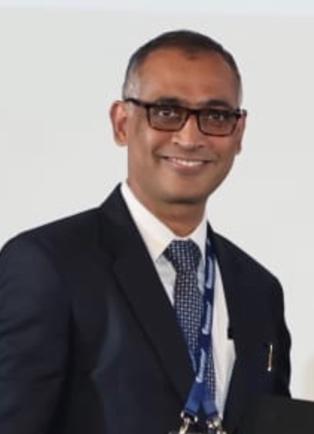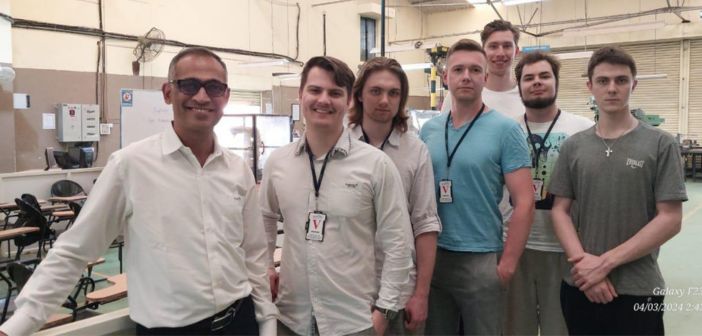
In the global scenario, vocational education stands as a pivotal force in addressing the evolving needs of the workforce and fostering sustainable economic development. Vocational education plays a crucial role in equipping individuals with practical skills and specialized knowledge that directly align with the demands of various industries. As the world witnesses rapid technological advancements and shifts in the job market, the importance of vocational education to build much-needed global vocational competence becomes even more pronounced.
In India, only 3.5% of youth receive formal vocational education compared to 35%-60 % of youth in advanced countries. Enrolment in Vocational education is a must to prepare the future workforce for growing demand and advancement of technology.
In this ever-evolving landscape of global education, nations are recognizing the importance of collaboration to address the skills gap and foster economic growth.
Guest Author: B.V.Sudharshan, Managing Director, Edutech NTTF, Bengaluru
India’s partnership with Estonia Vocational colleges
A small beginning to address the need for collaboration and increase the awareness of Vocational education, NTTF( Nettur Technical Training Foundation ) India and Tartu Vocational College, Estonia, despite being geographically distant, have come together to establish a robust partnership in the realm of vocational education. This collaboration aims to leverage each country’s strengths to provide comprehensive and innovative vocational training programs, preparing the workforce for the challenges of the 21st century and the future of work.
India and Estonia share a commitment to education and economic development. Estonia, with its pioneering approach to digital innovation and e-governance, has become a global model for effective governance and technological advancements. India, on the other hand, is a rapidly growing economy with a youthful demographic and a burgeoning need for skilled labour.
Recognizing the complementary nature of their strengths, it is important to enhance vocational education and empower their youth with practical skills aligned with industry demands.
Cross-Cultural Exchange enhances knowledge and Social competence
The collaboration facilitates student and teacher exchanges, allowing participants to immerse themselves in each other’s cultures and educational systems. This cross-cultural exposure enhances their global outlook, promotes tolerance, and fosters a deeper understanding of cultural nuances. Such experiences are invaluable in an increasingly interconnected world.

Practical Application of Skills and Technology
India’s vocational education system places a strong emphasis on hands-on learning and practical skill development. Estonian students can benefit from this practical approach, gaining real-world experience that goes beyond theoretical knowledge. Exposure to India’s dynamic and rapidly growing economy offers valuable insights into the application of vocational skills in various industries.
With exposure to NTTF’s centre of excellence in multiple technologies like Industry 4.0, Additive Manufacturing, Robotics and Automation, and emerging technologies like AI, ML and IoT, students get good hands-on experience to make them more versatile in today’s fast-changing world.
Entrepreneurship and Innovation Learnings
India’s vibrant entrepreneurial ecosystem is a key aspect that can greatly benefit Estonian students. Exposure to India’s startup culture and innovation hubs can foster an entrepreneurial mindset among Estonian learners. They may learn about the challenges and successes of Indian entrepreneurs, gaining inspiration for their ventures.
Exposure to India’s tech industry can inspire a forward-thinking approach and an understanding of how technology shapes various sectors.
To read more such articles from NTTF and know about their programmes, partnerhsips and other intitiaves, please visit the NTTF dedicated page on NSN website.
Global Workforce Preparedness
By participating in joint vocational programs, Estonian students become better prepared for the global workforce. Exposure to different work environments, practices, and industry demands positions them as adaptable and competitive professionals in an international context.
The exchange of knowledge and skills between these two nations contributes to the holistic development of cultural awareness and highly skilled individuals ready to contribute to the evolving demands of the global job market.












